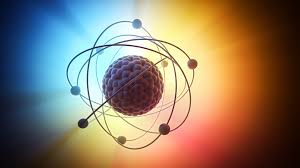1. The Science Behind Habits and How to Hack Them
Habits form the backbone of daily life, shaping approximately 40% of our actions. Understanding how habits are formed—via the cue-routine-reward cycle—offers a powerful framework for creating positive changes.
For example, if you want to develop a habit of exercising, identify a cue (e.g., setting out workout clothes), establish a routine (the workout itself), and choose a reward (like listening to your favorite podcast while exercising). By consistently reinforcing this cycle, the habit becomes second nature.
Breaking bad habits works in a similar fashion. Replace the routine linked to a negative cue with a healthier alternative. For instance, if you tend to snack on unhealthy foods while watching TV, substitute the snack with a glass of water or a healthier option. Over time, this substitution rewires the habit loop.
Understanding habits empowers you to take control of your behaviors, making small changes that compound into significant transformations over time.

2. Cognitive Biases That Shape Everyday Decisions
Human brains are wired to take shortcuts, known as heuristics, which often lead to cognitive biases. These biases subtly influence decisions, sometimes to our detriment.
One common bias is the confirmation bias, where individuals seek out information that supports their existing beliefs while ignoring contradictory evidence. This bias can lead to poor decision-making, especially in financial or relationship contexts.
Another example is the anchoring effect, where people rely too heavily on the first piece of information encountered. For instance, if an item is initially marked at $100 but discounted to $50, the anchor of $100 makes the $50 seem like a great deal—even if the item's true value is lower
Becoming aware of these biases helps mitigate their impact. Practice critical thinking, question assumptions, and seek diverse perspectives to make more informed decisions.
3. How Sleep Impacts Productivity and Health
Sleep is often undervalued, yet it is a cornerstone of physical and mental well-being. Studies reveal that adults require 7-9 hours of quality sleep to function optimally, but over one-third of people fail to meet this threshold.
Lack of sleep impairs cognitive functions like memory, attention, and decision-making, leading to decreased productivity. It also affects physical health, increasing the risk of conditions like obesity, diabetes, and cardiovascular diseases.
Establishing a consistent sleep schedule and creating a bedtime routine can improve sleep quality. Avoiding screens an hour before bed and maintaining a cool, dark sleeping environment further enhances restfulness. Small changes like these have a profound impact on energy levels and overall well-being.

4. The Power of Communication in Strengthening Relationships
Effective communication is at the heart of healthy relationships, whether personal or professional. Surprisingly, research suggests that active listening—fully concentrating on the speaker without planning your response—dramatically improves understanding and rapport.
Non-verbal cues like eye contact, facial expressions, and body language also play a significant role. People are more likely to feel valued when their emotions are acknowledged, even if their viewpoints differ from your own.
One insightful tip is to use “I” statements during conflicts. Instead of saying, “You never help around the house,” try, “I feel overwhelmed when I handle chores alone.” This approach fosters empathy and reduces defensiveness, paving the way for constructive dialogue.
 5. Everyday Applications of Scientific Principles
5. Everyday Applications of Scientific Principles
Scientific principles often influence our lives in ways we may not realize. For example, understanding Newton's Third Law—for every action, there is an equal and opposite reaction—can help improve sports techniques, from swimming to basketball.
Similarly, the concept of friction applies to productivity. Reducing "friction" in tasks—like keeping tools for a project easily accessible—can increase efficiency and motivation.
Even thermal dynamics play a role in cooking, helping achieve the perfect sear on a steak or understanding why certain pans distribute heat better. Recognizing these connections between science and daily life makes routine tasks more efficient and enjoyable.

nd Habits and How to Hack Them
Habits form the backbone of daily life, shaping approximately 40% of our actions. Understanding how habits are formed—via the cue-routine-reward cycle—offers a powerful framework for creating positive changes.
For example, if you want to develop a habit of exercising, identify a cue (e.g., setting out workout clothes), establish a routine (the workout itself), and choose a reward (like listening to your favorite podcast while exercising). By consistently reinforcing this cycle, the habit becomes second nature.
Breaking bad habits works in a similar fashion. Replace the routine linked to a negative cue with a healthier alternative. For instance, if you tend to snack on unhealthy foods while watching TV, substitute the snack with a glass of water or a healthier option. Over time, this substitution rewires the habit loop.
Understanding habits empowers you to take control of your behaviors, making small changes that compound into significant transformations over time.
2. Cognitive Biases That Shape Everyday Decisions
Human brains are wired to take shortcuts, known as heuristics, which often lead to cognitive biases. These biases subtly influence decisions, sometimes to our detriment.
One common bias is the confirmation bias, where individuals seek out information that supports their existing beliefs while ignoring contradictory evidence. This bias can lead to poor decision-making, especially in financial or relationship contexts.
Another example is the anchoring effect, where people rely too heavily on the first piece of information encountered. For instance, if an item is initially marked at $100 but discounted to $50, the anchor of $100 makes the $50 seem like a great deal—even if the item's true value is lower.
Becoming aware of these biases helps mitigate their impact. Practice critical thinking, question assumptions, and seek diverse perspectives to make more informed decisions.
3. How Sleep Impacts Productivity and Health
Sleep is often undervalued, yet it is a cornerstone of physical and mental well-being. Studies reveal that adults require 7-9 hours of quality sleep to function optimally, but over one-third of people fail to meet this threshold.
Lack of sleep impairs cognitive functions like memory, attention, and decision-making, leading to decreased productivity. It also affects physical health, increasing the risk of conditions like obesity, diabetes, and cardiovascular diseases.
Establishing a consistent sleep schedule and creating a bedtime routine can improve sleep quality. Avoiding screens an hour before bed and maintaining a cool, dark sleeping environment further enhances restfulness. Small changes like these have a profound impact on energy levels and overall well-being
4. The Power of Communication in Strengthening Relationships
Effective communication is at the heart of healthy relationships, whether personal or professional. Surprisingly, research suggests that active listening—fully concentrating on the speaker without planning your response—dramatically improves understanding and rapport.
Non-verbal cues like eye contact, facial expressions, and body language also play a significant role. People are more likely to feel valued when their emotions are acknowledged, even if their viewpoints differ from your own.
One insightful tip is to use “I” statements during conflicts. Instead of saying, “You never help around the house,” try, “I feel overwhelmed when I handle chores alone.” This approach fosters empathy and reduces defensiveness, paving the way for constructive dialogue.]
5. Everyday Applications of Scientific Principles
Scientific principles often influence our lives in ways we may not realize. For example, understanding Newton's Third Law—for every action, there is an equal and opposite reaction—can help improve sports techniques, from swimming to basketball.
Similarly, the concept of friction applies to productivity. Reducing "friction" in tasks—like keeping tools for a project easily accessible—can increase efficiency and motivation.
Even thermal dynamics play a role in cooking, helping achieve the perfect sear on a steak or understanding why certain pans distribute heat better. Recognizing these connections between science and daily life makes routine tasks more efficient and enjoyable.



You must be logged in to post a comment.